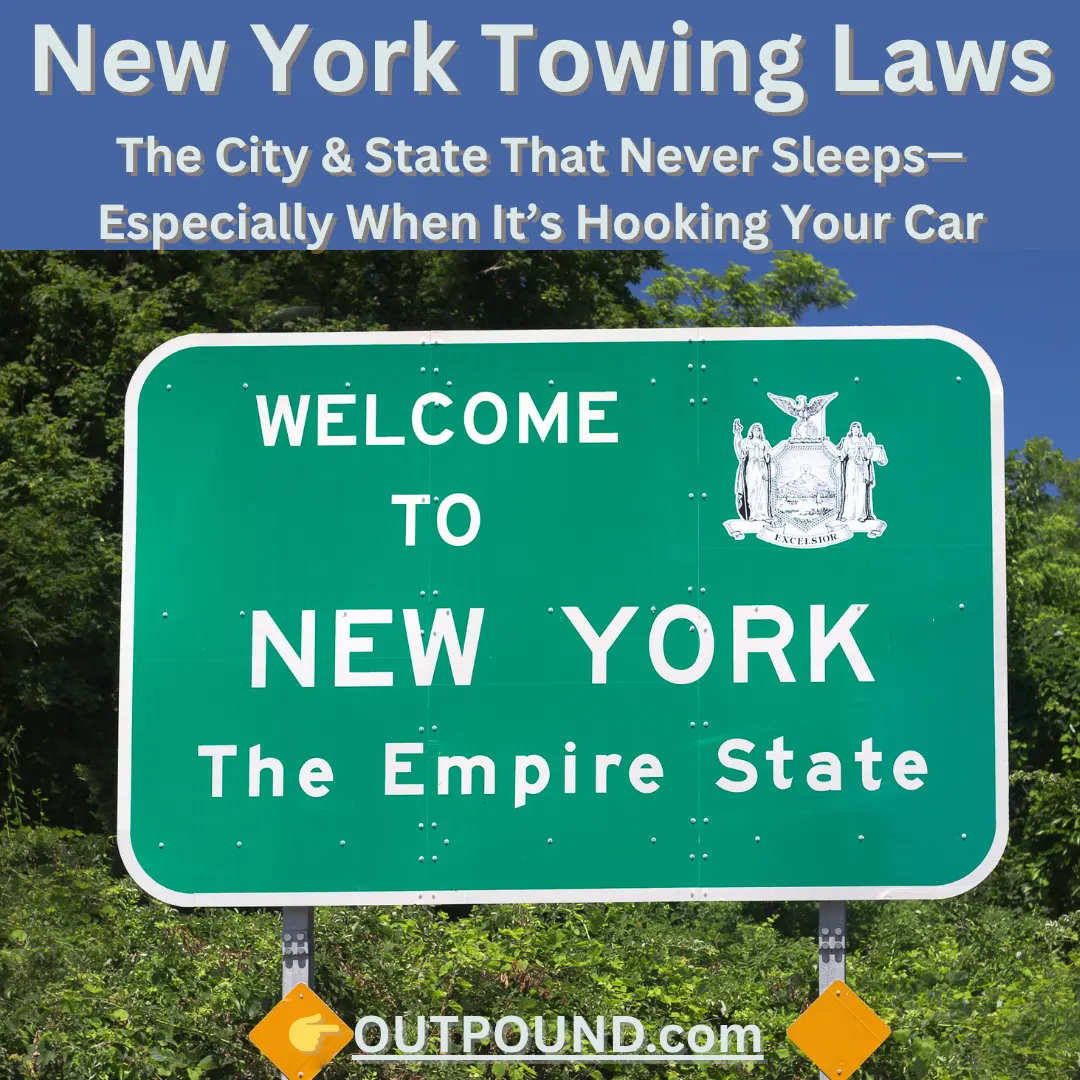The City & State That Never Sleeps—Especially When It’s Hooking Your Car

If you can make it here, you can make it anywhere, unless your car just got towed in New York. From the chaos of Manhattan to the potholes of Buffalo, the Empire State runs on caffeine, congestion, and tow trucks that lurk around corners like cabs at rush hour. And whether it’s a “No Standing” sign you didn’t see or a meter that ran out thirty seconds ago, New York doesn’t forgive!! IT TOWS!
Who Can Tow?
In New York, towing isn’t just a business, it’s a bureaucratic art form. Tow companies must be licensed by the Department of Consumer and Worker Protection (DCWP) in New York City or follow state-level requirements elsewhere. Every truck must display a license number, insurance info, and (in theory) the driver’s soul in writing.
Of course, having a license doesn’t mean much when you’re dealing with a driver who treats your car like a prize on The Price Is Right. Out in the boroughs, tow trucks move with NASCAR-level reflexes, spotting expired meters faster than pigeons find bagels.
When Can They Tow?
Public property? Easy, if you block a hydrant, double park, or park in a bus lane, say goodbye. Private property? Even easier. State law allows towing from private lots with clear signage and the property owner’s consent. In practice, those signs are sometimes barely legible, and the property owners? They’re often cozy with the tow companies.
And in New York City, the Department of Finance runs a well-oiled machine...Literally. The NYPD’s Authorized Tow Program tows thousands of cars each year for parking violations, tickets, and “abandoned” vehicles. Translation: if you didn’t move your car in time for street cleaning, your next stop is the impound yard on Pier 76.
Notification Requirements
By law, tow companies must notify police within 30 minutes of towing a vehicle. Then, your car’s info goes into an online database so you can “easily” find it. In reality, that database feels like playing a round of digital hide-and-seek.
You’ll get a ticket, a fine, and if you’re lucky, a cheerful letter letting you know where your car went, after it’s already racked up hundreds in storage fees.
Fees and Storage
New York’s towing fees are legendary. In New York City, the base tow fee sits at $185, with storage adding $20 per day after the first day. Illegally parked in a bus lane? Add another fine. Blocked driveway? Another charge. Blink twice? Probably another fee.
And if your car was towed for unpaid tickets, brace yourself for the “boot-tow combo”, a charming local tradition where your vehicle gets clamped first, towed second, and billed for both. Upstate isn’t much kinder. Tow yards in places like Rochester and Syracuse have a knack for “creative pricing,” especially after-hours. If you want your car released on a weekend, prepare to pay a fee that could rival your rent.
Vehicle Recovery
To reclaim your car, you’ll need your license, registration, insurance, and enough patience to survive a DMV line. Some yards only accept cash, others only cards, and all of them seem to operate on a schedule written in invisible ink.
Show up at the wrong time, and you’ll be greeted with a sign that says, “Closed. Come back tomorrow.” Translation: another day, another storage fee.
Legal Recourse
You can challenge a tow through NYC’s Parking Violations Bureau or small claims court elsewhere in the state, but good luck. The system is slow, paperwork-heavy, and tilted in favor of the tow yard. By the time you win (if you win), your storage costs will make victory feel like defeat.
The Big Apple Bailout: Getting Your Car Back Without Losing Your Mind
New York doesn’t just tow, it hustles. The city that never sleeps is wide awake, fueled by traffic tickets, tight curbs, and tow trucks that strike faster than a Wall Street trader on a caffeine rush. But you don’t have to face the madness alone.
Go to OUTPOUND.com before your next meltdown. It’s your shortcut to finding your car, understanding fees, and staying one step ahead of the Empire State’s tow kings. Because in New York, the real survival skill isn’t hailing a cab—it’s getting your car back before the next meter maid walks by.

